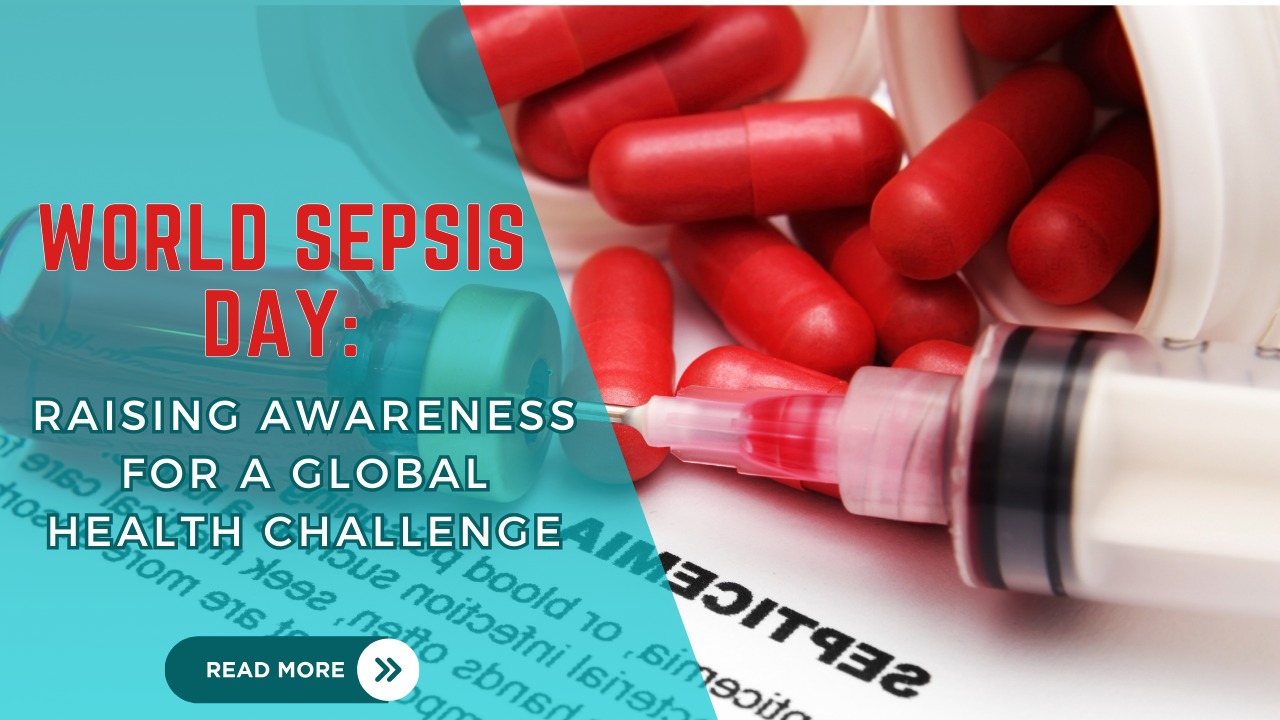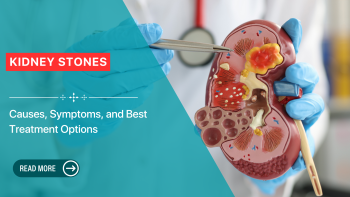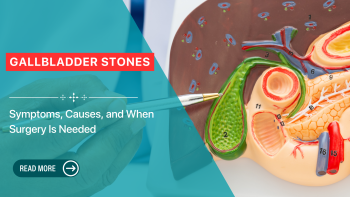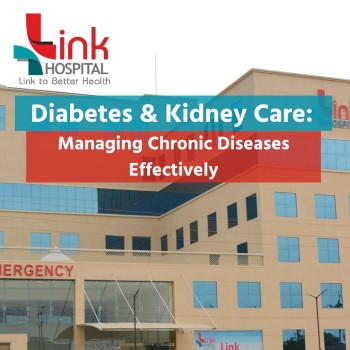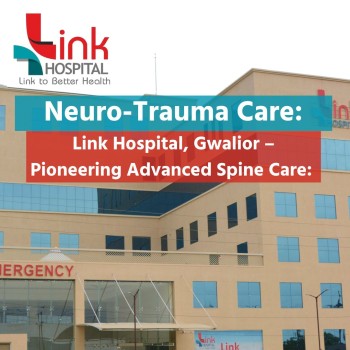World
Sepsis Day: Every year on September 13th, the world comes together to
recognize World Sepsis Day, an
important occasion aimed at raising awareness about sepsis, a life-threatening
medical condition that affects millions globally. Sepsis is often misunderstood
or overlooked, yet it is one of the leading causes of death and disability
worldwide. In this blog, we'll explore what sepsis is, its symptoms, causes,
and treatment, and why awareness is crucial. We'll also highlight the role of Link Hospital in Gwalior in providing
world-class care for sepsis patients.
What is Sepsis?
Sepsis is a life-threatening condition that
arises when the body's response to an infection triggers widespread
inflammation, leading to tissue damage, organ failure, and, if untreated,
death. It can result from any type of infection—bacterial, viral, or
fungal—commonly originating in the lungs, urinary tract, skin, or
gastrointestinal tract.
How Sepsis
Develops
When the immune system detects an
infection, it releases chemicals to fight it. In sepsis, this response goes
haywire, causing the body to attack its tissues and organs. Without prompt
intervention, sepsis can quickly progress to septic shock, where blood pressure drops drastically, increasing
the risk of organ failure and death.
Causes of Sepsis
Sepsis can be caused by any infection, but
it is often associated with:
● Pneumonia: Respiratory infections,
especially in vulnerable populations like the elderly, can lead to sepsis.
● Urinary Tract Infections (UTIs):
Particularly in older adults or those with kidney problems, UTIs can progress
to sepsis.
● Skin Infections: Cellulitis or
abscesses can introduce bacteria into the bloodstream, leading to sepsis.
● Abdominal Infections: Infections in the
digestive system can cause sepsis, particularly after surgery or trauma.
●
Bloodstream
Infections: Any bacteria or virus entering the bloodstream (bacteremia or
viremia) can lead to sepsis.
Recognizing the
Symptoms of Sepsis
Early detection is critical to managing
sepsis. The symptoms of sepsis can be mistaken for other conditions, making it
vital to recognize the warning signs. The acronym SEPSIS can help:
● S: Shivering, fever, or very cold
● E: Extreme pain or discomfort
● P: Pale or discoloured skin
● S: Sleepiness or difficulty waking up
confusion
● I: "I feel like I might die"
●
S: Shortness
of breath
Other symptoms may include rapid heart
rate, low blood pressure, and reduced urine output. If you or a loved one shows
any of these signs after an infection or injury, seek immediate medical help.
Sepsis Treatment and
Management
Emergency
Response
Sepsis is a medical emergency. Early diagnosis and prompt treatment are essential to improving survival rates. Patients suspected of having sepsis are typically treated in a hospital's intensive care unit (ICU), where the focus is on stabilizing blood pressure, managing infection, and supporting failing organs.
Common
Treatments for Sepsis:
● Intravenous (IV) Fluids: To maintain
blood pressure and hydration.
● Antibiotics: Broad-spectrum antibiotics
are administered immediately to combat the infection.
● Vasopressors: Medications to constrict
blood vessels and raise blood pressure in severe cases.
●
Organ Support:
Depending on the organs affected, patients may need mechanical ventilation,
dialysis, or other life-support measures.
Link
Hospital in Gwalior is equipped with a state-of-the-art ICU and experienced
medical professionals who specialize in the timely diagnosis and management of
sepsis, ensuring the highest level of care for patients in critical condition.
Preventing Sepsis
While not all cases of sepsis can be
prevented, there are steps you can take to reduce your risk:
1.
Vaccination
Ensure that you and your loved ones are
vaccinated against common infections, such as the flu, pneumonia, and other
diseases that could lead to sepsis.
2. Good
Hygiene
Regular handwashing, proper wound care, and
practising safe hygiene can help prevent infections that may lead to sepsis.
3. Early
Treatment of Infections
Don't ignore infections. Seek prompt
medical attention for any infections or injuries that seem to worsen or don't
improve over time.
4.
Awareness of Risk Factors
People with weakened immune systems,
chronic illnesses, or who are recovering from surgery or trauma are at higher
risk of developing sepsis. These individuals and their caregivers must be
vigilant about infection symptoms.
The Importance of World
Sepsis Day
World Sepsis Day is a global effort to
educate the public about the dangers of sepsis, encourage preventive measures,
and reduce mortality rates. According to the Global Sepsis Alliance, around 49 million people are affected by
sepsis every year, with over 11 million
deaths. Many of these deaths could be prevented with increased awareness and
faster medical intervention.
Sepsis Care at Link
Hospital, Gwalior
Link
Hospital in Gwalior is committed to providing top-tier medical care for
sepsis patients. Our hospital offers:
● Highly Trained Critical Care Teams: Our
ICU is staffed with experienced specialists trained to handle life-threatening
conditions, including sepsis.
● Advanced Diagnostic Tools: Link
Hospital uses cutting-edge technology to rapidly diagnose infections and
sepsis, enabling prompt treatment.
● Comprehensive Treatment Plans: We
provide personalized care for sepsis patients, addressing the underlying
infection and offering the necessary organ support to ensure recovery.
●
Round-the-Clock
Emergency Services: Sepsis can escalate quickly, which is why our emergency
department is equipped to provide immediate care to those in need.
If you or someone you know is at risk of
sepsis, don’t wait. Seek immediate medical attention at Link Hospital—the best multispecialty hospital in Gwalior. We are
dedicated to saving lives and raising awareness about this critical condition.
Conclusion
World Sepsis Day serves as a vital reminder
of the dangers posed by sepsis, a condition that can strike suddenly and with
devastating effects. By raising awareness, practising preventive measures, and
seeking immediate medical attention when needed, we can help reduce the global
burden of sepsis. For those in Gwalior, Link
Hospital stands as a beacon of hope, offering exceptional care for sepsis
and a wide range of medical emergencies. Trust us to provide you with the best
care when it matters most.
